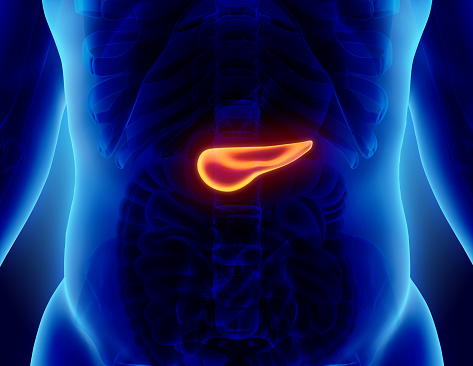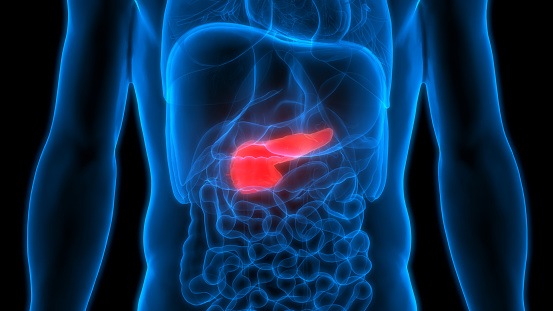
In patients with advanced pancreatic cancer, treatment with immunotherapy has led to limited responses. Recent research has demonstrated that dendritic cell (DC)-based immunotherapy resulted in T-cell responses against pancreatic cancer antigens.
A study from Casper van Eijck, MD, PhD, and colleagues published in the Journal of Clinical Oncology investigated the efficacy of DC-based immunotherapy in preventing disease recurrence in patients with pancreatic cancer.
For the combined phase 1 and 2 trial, the primary end point was 2-year recurrence-free survival (RFS), with a rate of 60% or more being considered a clinically meaningful improvement.
Participating patients received autologous DCs pulsed with an allogeneic mesothelioma tumor cell lysate. Researchers noted that comprising antigens were also expressed in pancreatic ductal adenocarcinoma.
Of the 38 participants, 28 (74%) were given 5 DC vaccinations and finished the study protocol, while 3 (8%) received 4 and 7 (16%) received 3. A median follow-up period of 25.5 months revealed that 26 (68%) patients did not demonstrate disease recurrence. Investigators estimated that the 2-year RFS was 64% and the overall survival rate was 83%.
Of the 12 patients who demonstrated disease recurrence, 6 (50%) had local recurrence, 4 (33%) had distant recurrence, and 2 (17%) had local and distant recurrence.
Following vaccination, Dr. van Eijck and colleagues found an enrichment of circulating activated CD4+ T cells. Vaccination resulted in identification of treatment-induced immune responses in vitro. Analysis of T-cell receptor sequencing of a resected solitary lung metastasis detected an increase of vaccine-specific T cells.
“This study reached its primary end point of a 2-year RFS rate of ≥60% following pancreatectomy after [standard-of-care] treatment and adjuvant DC-based immunotherapy in patients with pancreatic cancer,” the researchers wrote. “These results warrant a future randomized trial.”






 © 2025 Mashup Media, LLC, a Formedics Property. All Rights Reserved.
© 2025 Mashup Media, LLC, a Formedics Property. All Rights Reserved.